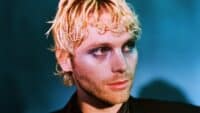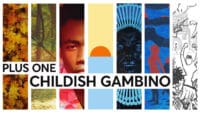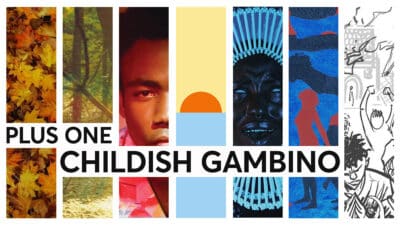Festivals

Review
Robbie Williams tells his life story at Isle of Wight festival
The pop star plays an ever-entertaining headline set at Seaclose Park
There are tens of thousands of people crowded in front of the Main Stage at Seaclose Park, but Robbie Williams only has eyes for one of them.
“What’s your name?” he asks a bearded man in the front row. “How old are you?” His name is Paul, and he is 57. Williams has decided to tell his life story to Paul. In-between songs, he comes back to him to inform him of the next chapter. He tells him that he used to be in a boy band called Take That. (“You would hate Take That, Paul.”) He tells him about the tensions in the group, about forging his own solo career, about getting married and becoming a dad. Paul reacts to it all with a warm nonchalance, as if Williams is revealing all of this over a pint – and not during his headline set at the Isle Of Wight Festival.
“We’re on a journey together featuring the highest of highs, the lowest of lows, the sex, the drugs, the scandal and the paparazzi,” William tells the crowd at the beginning of the set. “Tonight will be therapy for me, but it will be entertainment for you.”
It’s a pretty good summary. The next hour and a half is a careening, celebratory, sequin-studded trip through William’s career. Opening with ‘Let Me Entertain You’, Williams speaks over and over for his love of doing just that. He’s exuberant to the point of giddiness onstage. He makes cheeky jokes about his time in Take That, plays up his own bad behaviour. “I used to get threatened with the sack all the time, Paul,” he says. Why? mouths Paul, spreading his hands. A story about sneaking off to Glastonbury to play with Oasis leads into a cover of ‘Stop Crying Your Heart Out’. Another about the inevitable Take That reunion guides us into ‘The Flood’. Williams talks about feeling maligned when time after time the lead vocal was handed over to Gary Barlow. He launches into a performance of ‘Could It Be Magic?’, his first lead vocal for Take That, before jokingly bringing his band and dancers to a standstill.
“Stop, stop, I can’t be arsed,” he says, waving his arms. “Let’s face it, nobody was on the ferry today going, I hope he does ‘Could It Be Magic.’”
He gets great enjoyment out of these bits, but the hour and a half set also features moments of touching sincerity. Williams talks openly about his mental health struggles, the two decades in which it all felt routinely pointless, in which he wondered many times if he wanted to be on the planet at all. He is blunt and direct about these feelings, searching for those in the crowd who might share them. Two things saved him, he says – meeting his wife, and live music.
Williams’ love for what he does is moving. It permeates every second of his set and makes an audience of fans feel as if they are doing him a favour by being there, rather than the other way around. By the time ‘Angels’ swells over the field, tens of thousands of voices raised in appreciation of a British anthem, we have laughed, danced, sung, and been held captive as Williams talks. Which is to say, we have been thoroughly entertained.









